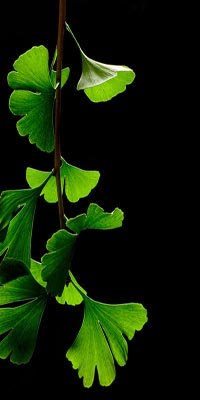|
Ginko
IntroductionOther names include fossil tree and Japanese silver apricot, kew tree, maidenhair tree, yinhsing and ginko-bilbao. It is amongst the oldest trees that are in the world. For many thousands of years the seeds have been used in traditional Chinese medicine. Occasionally the cooked seeds are eaten.
yinhsing leaf extract have been employed to treat numerous types of conditions and ailments this includes tinnitus, fatigue, bronchitis and asthma. Presently yinhsing leaf extracts are used by people who hope to improve their memory, help prevent and treat Alzheimer's disease as well as other forms of dementia. Additionally it is used to decrease leg pain which is caused by narrowing of arteries ( intermittent claudication) and to treat multiple sclerosis, sexual dysfunction, tinnitus as well as other types of conditions. Yinhsing, leaf extract are employed to make teas, tablets and capsules. Sometimes the extracts are employed in skin products. How Yinhsing Is Used[Top] Yinhsing, leaf extract are employed to make teas, tablets and capsules. Sometimes the extracts are employed in skin products. Science Says[Top] Side effects of yinhsing may include dizziness, allergic skin reactions, headache, diarrhea, nausea, gastrointestinal upset and diarrhea More serious allergic reactions have sometimes been reported People who have bleeding disorders, scheduled surgery should be cautious. There is some data which suggests that yinhsing may increase bleeding risk. Uncooked yinhsing seeds have a chemical which is known as ginkgotoxin. ginkgotoxincan cause seizures. Consumption of large amounts of seeds over a period of time may cause death. Side effects of yinhsing may include dizziness, allergic skin reactions, headache, diarrhea, nausea, gastrointestinal upset and diarrhea More serious allergic reactions have sometimes been reported People who have bleeding disorders, scheduled surgery should be cautious. There is some data which suggests that yinhsing may increase bleeding risk. Uncooked yinhsing seeds have a chemical which is known as ginkgotoxin. Ginkgotoxin can cause seizures. Consumption of large amounts of seeds over a period of time may cause death.
Back to natural healing home page
|
Loading



